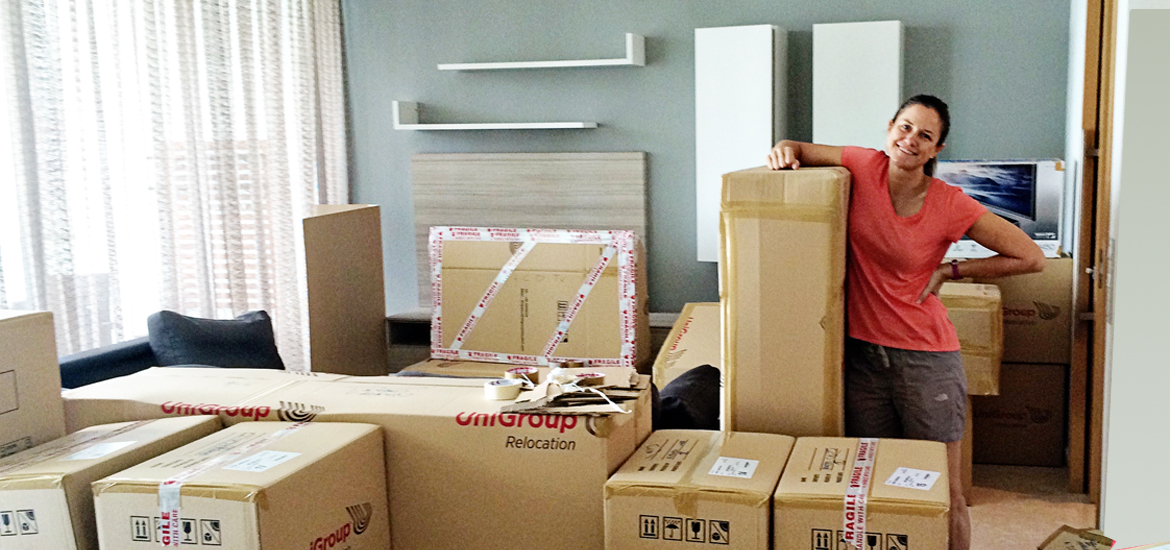Anyone reading The Family Backpack is a traveler, and what traveler hasn’t entertained the thought of moving the family to another country? The opportunity to truly experience another culture from the inside out is an amazing learning opportunity for any family. Talk to an expat and they will usually tell you about the travel, the lifestyle, and the daily opportunities to immerse themselves in another culture and broaden their children’s horizons.
However, being an expat is not all glamorous Facebook photos from exotic locales. There are very real challenges that every family should consider before taking the plunge. For most families, the benefits far outweigh the challenges. Yes, it is amazing to be able to take a weekend trip to Bali on a whim. Or have your kids learn how to ski in the Swiss Alps rather than your local bunny hill. Or go on Spring Break in a Japanese onsen, rather than the Wisconsin Dells. And learning Mandarin when young, rather than as an adult? Priceless!

When we were moving overseas, we spoke to lots of current and former expats who consistently told us “it will be hard in many ways you can’t imagine,” and they were right! There is no way you can ever be fully prepared for the shock of a totally new culture. My husband, two daughters and our labradoodle moved from Milwaukee, Wisconsin to Singapore. Overnight we went from suburban, winter-loving, house-dwelling Midwesterners to condo-living, sweaty, car-free city folks. Even though we wanted to be expats, and my husband even grew up AS an expat in Singapore, there were still areas that surprised us, both good and bad. Before you take the plunge, here are a few areas to consider in deciding whether being an expat is the right choice for you and your family.
Family Ties
Are you a “see you next Christmas” kind of family or an every-Sunday-dinner kind of family? Expats typically get very few tickets paid for to return home each year, so depending on your financial situation it will likely mean very few visits with family. If you have elderly parents needing assistance or just need to spend in-person quality time with your sister, these visits will be drastically reduced. Depending on your situation this could be hard – or a welcome change!
Trailing Spouse
Once mostly women were the trailing expat spouses, but more and more men are also relocating for their wife’s job. Frequently the trailing spouse has a very hard time finding work because of work permits, language barriers, and visa regulations, and he or she is dependent on the holder of the work visa to do everything from signing up for cable service to getting a cell phone. This can really grate on the conscience of independent-minded spouses. Does he or she have a consulting or independent project that can be done from afar? Is he or she happy with being the stay-at-home spouse navigating a foreign grocery store every day? Make sure all parties know what they are signing up for.
Marriage
Which brings us uncomfortably to the subject of marriage. Moving is very stressful for any family, which puts a strain on relationships in the best of times. You and your spouse must be aligned with your thinking about your move overseas or else resentment can grow, especially with extended travel apart (which goes with the territory for most expat assignments). For months after your move, your children will be moody, the working spouse will be stressed, and the trailing spouse will be lonely. Be sure you are able to be 100% supportive of each other and your kids.
Health
What is the reputation of the local health services in your destination country? Even if you are all perfectly healthy folks who take nothing but multivitamins, stuff happens. When we moved to Southeast Asia, my daughter who only needed an inhaler when she had a cold was on a nebulizer daily because of air pollution, and my daughter with occasional mild eczema developed boils on her skin because of the humidity. None of this ever happened in the United States! Even if you plan to see expat-friendly doctors, if you need a specialist urgently or need to go to an emergency room you will have to deal with the local health care system, whatever that might look like.
Language
If you are not fluent in the language of your destination country, how willing are you to become a student again? In many countries, it might be possible to get by with the basics, and today language apps like Google Translate allow you to get by just about anywhere. However, to truly understand your host country a working knowledge of the local language is a must. Travelers can get by with “please,” “thank you” and “where is the bathroom?” but expats need more. You won’t find “where can I buy gluten-free flour?” or “my daughter is looking for a soccer team, does anyone in your family play?” in your Lonely Planet phrasebook. It is intimidating going out alone and negotiating the public market with your beginner language skills, but being comfortable making mistakes is a huge part of being an expat. Embrace it!
Schools
One of the best reasons for going abroad is to give your kids a chance to study with students from all over the world. Whether they are in a local or international school their experience will benefit them for a lifetime. However, many of the school services that Westerners take for granted, such as speech and physical therapy, learning support services, classroom differentiation and accommodations for disabilities are not nearly as available as they are in more developed countries. If your child requires any kind of learning support, be sure to have a long talk with your preferred school about what is available, whether it is included in tuition, and what kind of training their teachers receive.
Making Friends
When living overseas everyone has left their old networks behind so it is really easy to make friends, especially if there is a large expat community. Unfortunately, with many companies sending expats overseas for only two to three years your new friends will also be moving away, a lot. The good news is that expat friends tend to be friends for life! Whenever possible, do go out of your way to get out of the “expat bubble” and befriend residents of your host country. Some may be reticent because expats are only around for a short time, but cracking into a group of locals really is the best way to truly experience another country.
Adaptability
How adaptable are you – really? Do you lose it when your favorite brand of cereal is not available at the grocery store? Would you ship cartons of your favorite laundry detergent or paper towels overseas at great expense? Do you see yourself traveling halfway around the world only to live at McDonald’s and Starbucks? If you are not willing to embrace what your home country has to offer, perhaps short vacations are best for you.
Paperwork
How good are you at filling out Excel spreadsheets and submitting reimbursement forms? The paperwork for expats is relentless. Typically the company will pay for most of your expenses, but this often means being reimbursed for tens of thousands of dollars. Tracking expenses is time-consuming and boring, but someone in the family has to do it.
Picture your last family vacation. Looking back, do you remember the canceled flight or the amazing meals? We all gloss over the bad and highlight the good. As an expat, there are many wonderful opportunities for travel and learning but it’s not all smiles, luxury hotels, and Great Wall selfies. Living in another country can be an incredibly positive, life-changing experience but every family has unique issues and challenges. One family’s dream is another family’s nightmare, and no one knows your family’s situation better than you. Before you decide, talk to other expats, both current and former, and do your research. The more you know, the better your experience will be.

